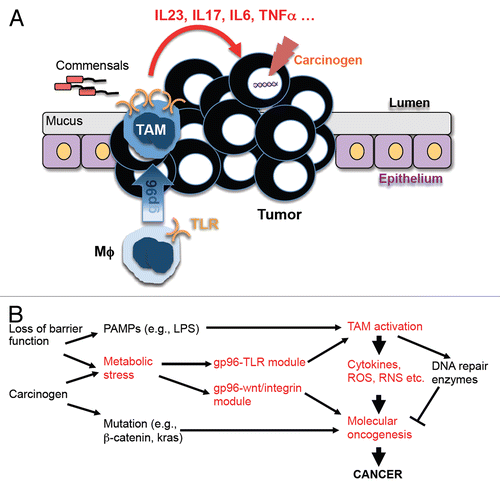Figures & data
Figure 1. A pivital role of GP96 in driving inflammation and inflammation-associated colonic carcinogenesis. (A and B) The loss of barrier functions leads to bacterial translocation across the intestinal wall, which activates macrophages through Toll-like receptor (TLR) ligands such as lipopolysaccharide (LPS). Chronic inflammation coupled with carcinogens triggers the upregulation of glycoprotein 96 (GP96) and the functional conversion of macrophages (Mϕs) into tumor-associated macrophages (TAMs), which fuel oncogenesis by producing cytokines, reactive oxygen species (ROS), reactive nitrogen species (RNS), etc. The metabolic stress conditions that characterize the tumor microenvironment also stimulate the increased expression of GP96 in (pre)neoplastic cells, promoting malignant transformation through multiple signaling modules including the WNT and integrin pathways.

